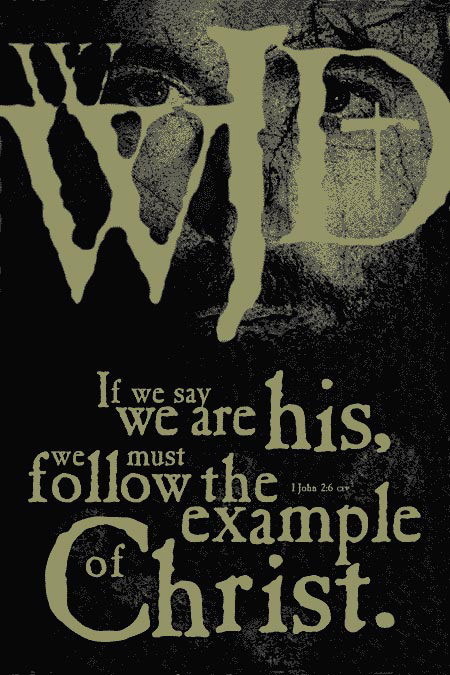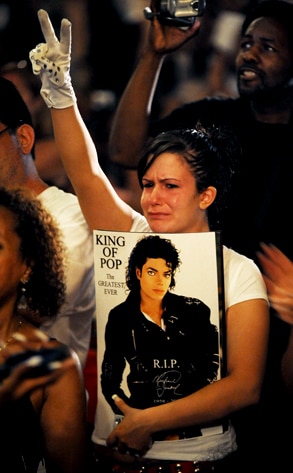My sister was born a few years later, on August 22nd, 1982. After having the two of us, my parents decided that was enough, so I'm the oldest of two kids.
My childhood was relatively uneventful. To this day I've never broken a bone, and I've only had stitches once, but that was from oral surgery. I've never been admitted to the hospital other than at birth. Let's just say I was a careful child.
My parents would spank us when we were disobedient. Only once do I remember being spanked with anything other than my parents' hands (I got the wooden spoon once when my mom caught me in the driveway out front walking around the Ford Bronco while urinating). As we got older, groundings came into play more. I remember once in 5th grade when I was grounded for an entire week. That was earth-shattering to me, especially since I felt it was unjust (I had gone with my friend to the video store without telling my parents I was going somewhere, but I HAD told my sister and SHE was supposed to tell them). You see, I was a "pleaser". I wanted to please my parents, my teachers, and anyone else who had authority over me.
I went to public school, and I was a smart kid. In the mandatory IOWA testing, I scored in the 99th percentile every time. I didn't get my first B in school until high school (it was an Advanced class, so for GPA purposes, the B was the same as an A). Once old enough, I was put in the Gifted program at school. I was a member of the National Junior Honor Society in Junior High, and then the National Honor Society in High School. In High School, if there was an Advanced or AP class, I took it, and did well in it. God gifted me with a good memory, so I could memorize facts and figures very easily. I didn't study for my first test until my Junior year of high school. When it comes to a trivia game, you want me on your team (converserly, when it comes to sports, I'm the LAST one you want on your team).
The year before I started Kindergarten, I was invited to something called Vacation Bible School. Hey, going to school was cool back then, so I was all for it. By the end of the week I had accepted Jesus Christ as my personal savior. My parents then asked if I was interested in going to Sunday School. Like I said, school was cool back then, so I was all for more school. So, my family started going to church for pretty much the first time in my life. We attended Grace Community Church in Tempe, Arizona.
We then were told about this club for kids called Awana. I was all about doing more stuff, so I started in Sparks the fall of 1985. I was a shy child, so I always wanted my parents with me. My dad decided he would come and be a listener/helper my first night of Sparks. By the second week, they had made him a leader. By the third week, he was the Game Director for all of Sparks. And, just like that, my family became active in Awana.
A couple of years later, my parents decided it would be better to live closer to work for my dad, so we moved to the west side of Phoenix in April of 1988. This was the only time in my life that I had to make a major move (major of course being a relative term since we really only moved 45 minutes away). I had to make new friends and join a new school with only a month or so left in the school year (I was in second grade at the time). That made things difficult for me at first, to the point that I didn't really make any friends until I started third grade the following year. That's when I met my best friend growing up, Sterling.
Sterling and I did things together almost every day during the week. I'd go over to his house, or he'd come over to my house. We'd play basketball at his house, or Super TecmoBowl on the Nintendo, or football in the backyard with his older brother. At my house we'd play my Nintendo or play with my toys. During the summer, we'd go swimming at each other's houses. Almost every Friday night, we'd sleep over at one or the other's house. For some reason though, Sterling wasn't able to play on Sundays. I asked my mom about it, and she told me that Sterling was Mormon, so he wasn't allowed to play on Sundays. I had no idea what a "Mormon" was. It turned out my best friend was a completely different religion. Sterling and I never spoke about each other's religion. He came with me to a few church activities, and I went to one at his church, but that was it. We never tried to convert each other or even discuss our conflicting beliefs. Sterling was my first exposure to a different religion, and I never even tried to talk to him about it.
Sterling and I were best friends until around Junior High. At that time, we started to drift apart more and more. By the time we went to high school, we barely even spoke to each other. It was by far the most painful separation I ever went through. We just didn't have the same interests anymore. I drifted more into the "nerd" clique, and he started to drift into the "cool" clique. I developed a closer friendship with someone named Brian, the nerdiest person I've ever known (he'd admit it himself). Brian and I got through Junior High together. Then, right before promotion (we got in trouble if we called it "Eighth Grade Graduation", it was "Promotion"), he told me that his family was moving back to Nebraska. So, with High School looming, I had lost my best friends.
After moving to the west side of town, my family started attending First Baptist Church, Garden Lakes. They didn't have an Awana program, so that following year, my parents started one. They were the Awana Commanders during our entire time there. I was deeply involved in Awana, participating in Olympics and Bible Quizzing every year. We even went to Craft Camp a couple times. Then, at Craft Camp one year, we met the Awana Missionaries, Wes and Dianne Stewart (they ran the Craft Camps), who told us about Scholarship Camp. I started attending Golden West Scholarship Camp in the summer of 1991 as a camper going into 6th grade. Now, if you'll remember from earlier, I was a shy kid. Because of that, my dad went with my to Scholarship Camp, and he was my cabin counselor. He slept on the bunk below me. And I STILL got homesick 5 of the 7 nights that week. I cut it down to 4 out of the 7 nights the following year. And then, the summer before my 8th grade year, my dad was moved up to Varsity, and I was still in JV. Instead, I had a new counselor by the name of Bob Gordon. That year Bob helped me work through my homesickness. I had some problems still that year (always at night though, usually because I couldn't sleep), but Bob helped me through.
So, there you have it, my childhood in a nutshell. Why am I telling you all of this? So you'll know me better. In order to listen to and understand a person's position, you have to understand the person. I want you to see that I agree with the way I was raised in some ways, and that I disagree with it in other ways. I want you to see that when I take a stand, I have the loving support of my family behind me. I want you to know who I am before you listen to what I have to say.
Stay tuned next time for the High School and College years.


 So, how does it work? Well, you have 10 points, and you get to split these 10 points among the three categories, which are P(rofitable), E(mpty), and G(arbage). So, a hymn like "Amazing Grace" would be something like 10-0-0. A song like "Row, Row, Row Your Boat" would be 2-6-2 (it's useful for teaching kids music, but really, the song doesn't MEAN anything). A song like "More Human Than Human" by Rob Zombie would be something along the lines of 0-4-6 (bad language, but the song really doesn't MEAN much at all if you listen to the actual words).
So, how does it work? Well, you have 10 points, and you get to split these 10 points among the three categories, which are P(rofitable), E(mpty), and G(arbage). So, a hymn like "Amazing Grace" would be something like 10-0-0. A song like "Row, Row, Row Your Boat" would be 2-6-2 (it's useful for teaching kids music, but really, the song doesn't MEAN anything). A song like "More Human Than Human" by Rob Zombie would be something along the lines of 0-4-6 (bad language, but the song really doesn't MEAN much at all if you listen to the actual words).






 Today's tip is to record those shows you want to watch. Use that DVR, DVD-R, or VCR (yes, I know people that still use a VCR) and record the shows. This'll save you loads of time. First off, you get to skip the commercials. Did you know that the average 1-hour show is really only 42 minutes long? That means that roughly every time you watch an hour-long show on TV, 1/3 of your time is spent watching commercials.
Today's tip is to record those shows you want to watch. Use that DVR, DVD-R, or VCR (yes, I know people that still use a VCR) and record the shows. This'll save you loads of time. First off, you get to skip the commercials. Did you know that the average 1-hour show is really only 42 minutes long? That means that roughly every time you watch an hour-long show on TV, 1/3 of your time is spent watching commercials.











